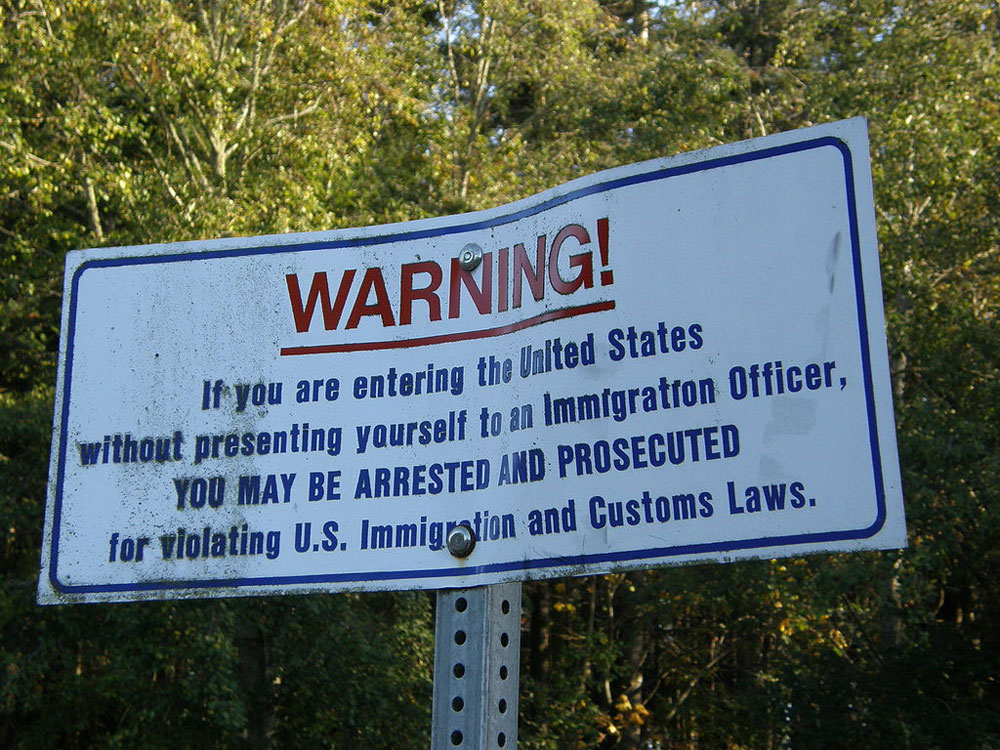
March 29, 2020; The Guardian, WGBH, and Miami Herald
Immigrant advocates and civil rights organizations are suing federal and local governments to try to protect detainees from the rapidly spreading coronavirus. Due to harsh federal immigration policies, the Trump administration is now holding over 50,000 in crowded detention facilities—and forcing asylum seekers to attend in-person hearings in immigration courts.
On March 27, six immigrant legal advocacy groups filed a motion in federal district court in Portland, OR, for a temporary restraining order to stop hearings in federal immigration courts. Though the federal government has stopped deportation hearings for immigrants not currently detained, detainees, their attorneys, judges, and staff are required to appear in court. According to the lawsuit filed by Las Americas Immigrant Advocacy Center, Asylum Seeker Advocacy Project, Catholic Legal Immigration Network, Innovation Law Project, Santa Fe Dreamers Project, and the Southern Poverty Law Center, “Defendants’ conduct has turned the immigration court system into a public health hazard.”
As reported in NPQ previously, numerous court employees have warned that the immigration courts are not being properly sanitized, and crowded hearing rooms do not allow for social distancing.
Detention centers are another potential site for spreading COVID-19, the disease that results from exposure to the coronavirus. In Massachusetts, Lawyers for Civil Rights, Yale Law School’s Worker and Immigrant Rights Advocacy Clinic, and the Brazilian Worker Center are suing the Bristol County Sheriff Thomas Hodgson and Immigration and Customs Enforcement (ICE) on behalf of two immigrants, Maria Alejandra and Julio Cesar, who suffer from asthma and depression and anxiety, respectively, and are therefore vulnerable to serious illness if infected.
Sign up for our free newsletters
Subscribe to NPQ's newsletters to have our top stories delivered directly to your inbox.
By signing up, you agree to our privacy policy and terms of use, and to receive messages from NPQ and our partners.
The lawsuit claims the Bristol County detention facility is not properly disinfecting the premises, nor providing hand sanitizers to detainees. The plaintiffs seek to force ICE to release the immigrants under supervised release or with electronic ankle monitors to limit detainees’ exposure to COVID-19. Judges in New Jersey, New York and California have already ordered the release of some detainees based on health concerns.
Bristol County Sheriff Hodgson claims the Massachusetts lawsuit is frivolous, and that health screenings and appropriate precautions are being taken. ICE also reports that “its epidemiologists have been tracking the outbreak, regularly updating infection prevention and control protocols, and issuing guidance to the ICE Health Service Corps staff for the screening and management of potential exposure among detainees.” Thus far, ICE has reported coronavirus only among two detainees in New Jersey and five employees in Texas.
But the Guardian reports that across immigrant detention centers in southern states there is rising panic and protests over the coronavirus.
“People are terrified for their lives and think that they’re going to die there,” Phoebe Lytle, a law student volunteer who has spoken with Louisiana detainees, told The Guardian. A 61-year-old asthmatic at the Jackson Parish detention center told Lytle he was “very, very worried.”
Living in crowded facilities, with compromised immune systems and pre-existing conditions, it’s no wonder that detainees—and their family members on the outside—are worried. To express their concern and demand solutions, detainees are turning to hunger strikes. Thus far, however, these actions seem only to be provoking the ire of guards, rather than forcing ICE to take appropriate steps to protect the health and safety of those in their custody.—Karen Kahn













